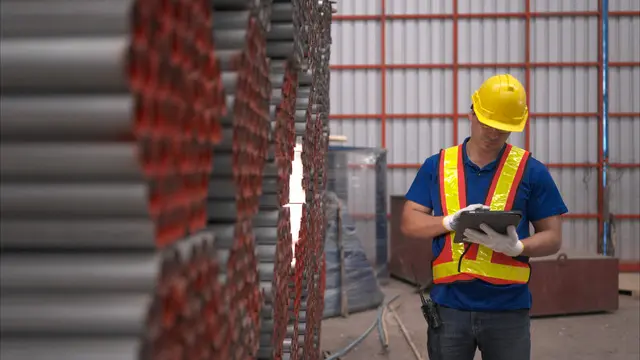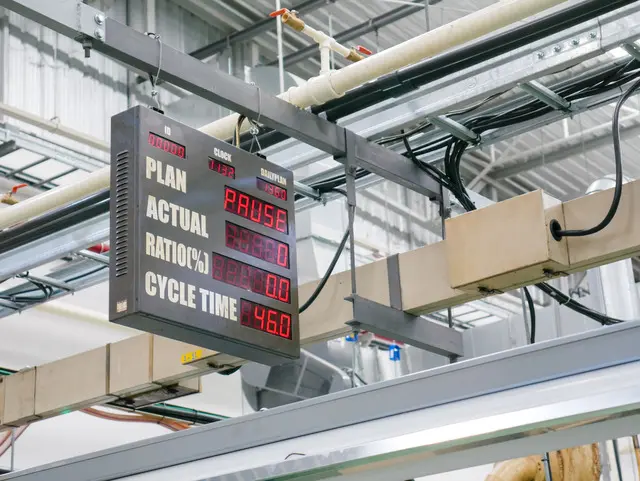Challenges and Benefits of Quality Control Automation in Manufacturing
In the competitive manufacturing landscape, ensuring product quality is paramount. However, traditional quality control processes can be time-consuming, error-prone, and inefficient. Quality Control Automation offers a transformative solution, leveraging advanced technologies like Python, AI, and cloud computing to streamline and enhance inspection processes.
Challenges of Manual Quality Control:
- Subjectivity and Inconsistency: Human inspectors may vary in their assessments, leading to inconsistent results.
- Time-Consuming and Labor-Intensive: Manual inspections require significant time and resources, slowing down production.
- Accuracy Limitations: Human error can result in missed defects or false positives.
Benefits of Quality Control Automation:
- Objectivity and Consistency: Automated systems provide consistent and unbiased inspections, eliminating human bias.
- Speed and Efficiency: Automation significantly reduces inspection time, increasing production throughput.
- Improved Accuracy: AI-powered systems can detect defects with precision, minimizing false positives and negatives.
- Cost Savings: Automation reduces labor costs and minimizes product recalls due to defects.
- Enhanced Traceability: Automated systems provide detailed records of inspections, ensuring accountability and traceability.

Python, AI, and Cloud’s Role in Quality Control Automation
Python for Unattended and Attended Bots
Python is an ideal language for developing both unattended and attended bots for quality control automation:
- Unattended Bots: Python’s robust libraries and frameworks enable the creation of sophisticated bots that can run autonomously, performing repetitive inspection tasks without human intervention.
- Attended Bots: Python provides the flexibility to develop bots that interact with human inspectors, assisting them with tasks, providing real-time guidance, and automating data entry.
Cloud Platforms for Automation Orchestration
Cloud platforms offer superior capabilities as automation orchestrators compared to traditional RPA/workflow tools:
- Scalability: Cloud platforms can seamlessly scale to meet varying inspection demands.
- Security: Cloud providers implement robust security measures to protect sensitive inspection data.
- Integration: Cloud platforms integrate with a wide range of systems, enabling seamless data exchange.
AI for Enhanced Accuracy and Edge Case Handling
AI plays a crucial role in enhancing the accuracy and efficiency of quality control automation:
- Image Recognition: AI algorithms can analyze images captured by machine vision systems to detect defects with precision.
- Natural Language Processing (NLP): NLP can automate the interpretation of inspection reports and other unstructured data.
- Generative AI (Gen AI): Gen AI techniques can generate synthetic inspection data to train AI models, improving their generalization capabilities and handling edge cases.

Building a Robust Quality Control Automation with Python and Cloud
Process Analysis and Automation
The Quality Control Automation: Implement automated quality inspection processes to detect defects and deviations in manufactured parts. Utilize machine vision systems and sensors to conduct real-time quality checks during production. process can be broken down into the following sub-processes:
- Image Acquisition: Capturing images of manufactured parts using machine vision systems.
- Defect Detection: Analyzing images to identify defects using AI algorithms.
- Data Recording: Storing inspection results in a central database.
- Reporting: Generating reports on inspection findings.
Automation Development with Python and Cloud
Using Python and cloud platforms, we can automate these sub-processes as follows:
- Image Acquisition: Develop Python scripts to interface with machine vision systems and capture images.
- Defect Detection: Train AI models using cloud-based machine learning services to detect defects in images.
- Data Recording: Store inspection results in a cloud database for easy access and analysis.
- Reporting: Create Python scripts to generate reports on inspection findings and visualize results.
Data Security and Compliance
Data security and compliance are paramount in manufacturing. Python and cloud platforms provide robust security features to protect sensitive inspection data:
- Encryption: Data can be encrypted at rest and in transit to prevent unauthorized access.
- Authentication and Authorization: Access to inspection data can be controlled through role-based access control mechanisms.
- Compliance: Cloud platforms adhere to industry-standard compliance certifications, such as ISO 27001 and HIPAA.
Advantages of Python over No-Code RPA/Workflow Tools
Python offers several advantages over no-code RPA/workflow tools for quality control automation:
- Flexibility: Python is a general-purpose language that provides greater flexibility and customization options.
- Scalability: Python scripts can be easily scaled to handle large volumes of inspections.
- Integration: Python integrates seamlessly with a wide range of systems and technologies.
Algorythum’s Approach
Algorythum takes a different approach to BPA by focusing on custom Python-based solutions. This approach addresses the limitations of off-the-shelf automation platforms, which often lack the flexibility, scalability, and integration capabilities required for complex quality control automation scenarios. Our Python-based solutions are tailored to meet the specific needs of our clients, ensuring optimal performance and satisfaction.

The Future of Quality Control Automation
The convergence of Quality Control Automation: Implement automated quality inspection processes to detect defects and deviations in manufactured parts. Utilize machine vision systems and sensors to conduct real-time quality checks during production., Python, AI, and cloud computing holds immense potential for the future of manufacturing.
Extended Implementation Possibilities
- Predictive Maintenance: AI models can analyze inspection data to predict potential equipment failures, enabling proactive maintenance and reducing downtime.
- Quality Traceability: Blockchain technology can be integrated to create a tamper-proof record of inspection results, ensuring traceability throughout the supply chain.
- Augmented Reality (AR): AR devices can provide inspectors with real-time guidance and overlay inspection data onto physical parts.
Subscribe and Contact Us
To stay updated on the latest advancements in quality control automation and other industry-specific automation solutions, subscribe to our newsletter.
Contact our team today for a free feasibility assessment and cost estimate for your custom quality control automation requirements. Our experts will work with you to design and implement a tailored solution that meets your specific needs and drives manufacturing efficiency and quality to new heights.

Algorythum – Your Partner in Automations and Beyond
At Algorythum, we specialize in crafting custom RPA solutions with Python, specifically tailored to your industry. We break free from the limitations of off-the-shelf tools, offering:
- A team of Automation & DevSecOps Experts: Deeply experienced in building scalable and efficient automation solutions for various businesses in all industries.
- Reduced Automation Maintenance Costs: Our code is clear, maintainable, and minimizes future upkeep expenses (up to 90% reduction compared to platforms).
- Future-Proof Solutions: You own the code, ensuring flexibility and adaptability as your processes and regulations evolve.









